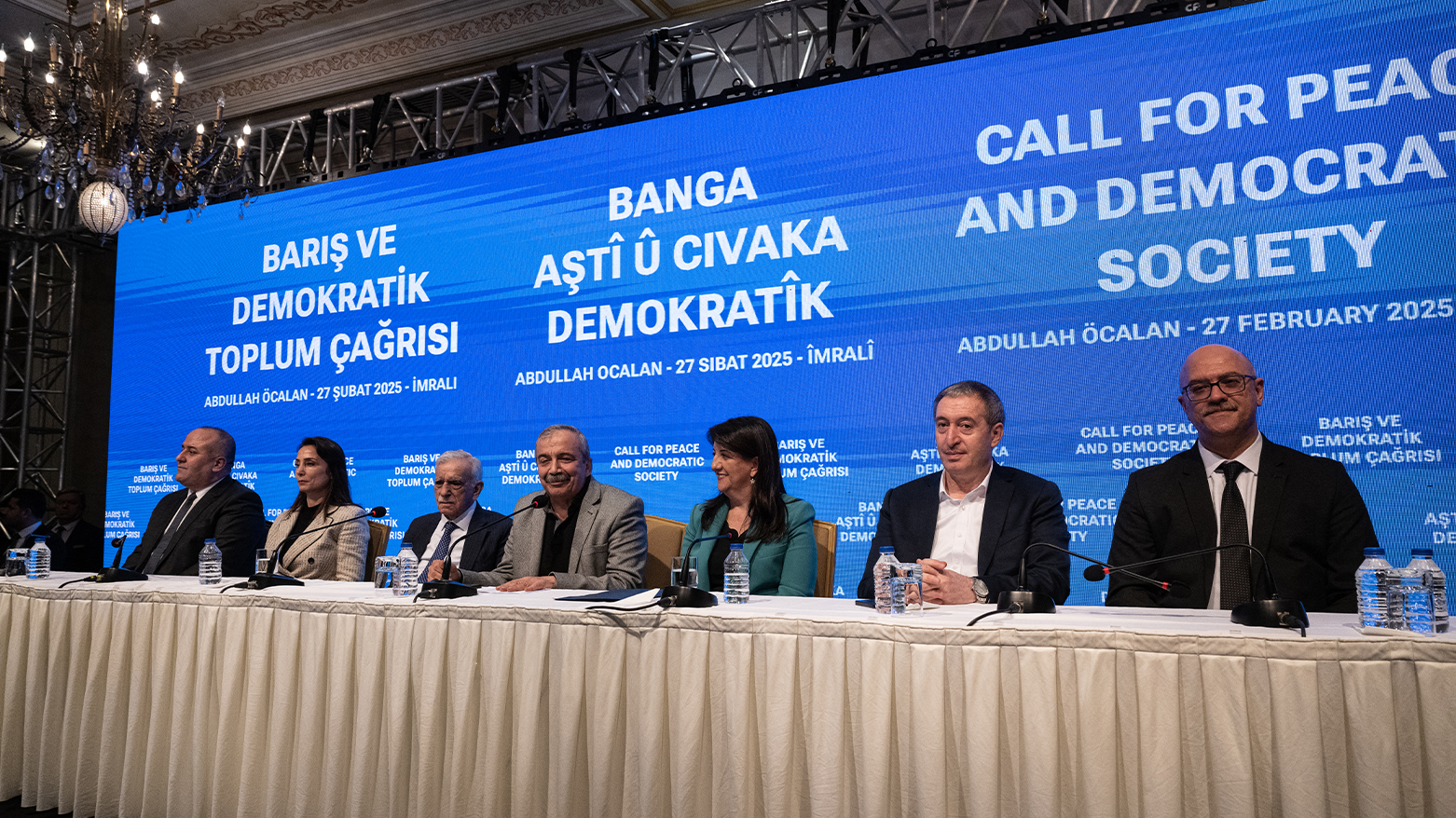DEM Party Calls to Halt Turkish Operations for PKK Congress, Peace
"We thank President Barzani and all the political leadership of the Kurdistan Region for the support they have provided. This is complete support for Kurdish unity," she stated. Her remarks underscore a broader push within Kurdish political circles to create conditions conducive to peace talks.

ERBIL (Kurdistan24) – The co-chair of the Peoples' Equality and Democracy Party (DEM Party), Tülay Hatimoğulları, has called for the suspension of Turkish military operations outside its borders to enable the Kurdistan Workers' Party (PKK) to hold its congress and implement the recent message from its imprisoned leader, Abdullah Ocalan.
The request comes at a pivotal moment in Kurdish politics, as renewed discussions on peace and disarmament gain traction.
During a faction meeting, Hatimoğulları expressed gratitude towards Kurdish political leaders in Iraq for their role in fostering unity among Kurdish movements.
"We thank President Barzani and all the political leadership of the Kurdistan Region for the support they have provided. This is complete support for Kurdish unity," she stated. Her remarks underscore a broader push within Kurdish political circles to create conditions conducive to peace talks.
Hatimoğulları highlighted that the PKK has publicly committed to Ocalan’s recent message, raising hopes for a potential resolution to the decades-long conflict. "The PKK had announced its commitment to Abdullah Ocalan's message, which has increased hopes for peace. In order to make this hope permanent and to allow the PKK to hold its congress, a conflict-free environment must be created and all military activities outside Turkey's borders should be halted," she urged.
On Feb. 27, 2025, a delegation from the DEM Party visited İmralı Prison, where Ocalan has been held since 1999. Following their visit, they held a press conference to publicly disclose Ocalan’s message to the PKK. In a significant shift, Ocalan called on the organization to hold a congress and take decisive action toward disarmament.
"Hold your congress and make a decision. All groups must lay down their weapons, and the PKK should dissolve itself," Ocalan stated.
The impact of Ocalan’s message was swift. A few days later, the PKK’s Executive Committee released a statement affirming its adherence to Ocalan’s directives. "We will adhere to Ocalan's message, implement it, and declare a ceasefire," the PKK leadership announced, signaling a potential breakthrough in the long-running conflict between the group and the Turkish state.
The DEM Party’s appeal places the onus on the Turkish government to take tangible steps toward de-escalation. "Now all eyes are on the authorities and the state. Concrete steps need to be taken," Hatimoğulları asserted. The call for a cessation of hostilities aligns with broader efforts to revive peace negotiations, which have repeatedly collapsed in the past due to ongoing military engagements and political disagreements.
Turkey has maintained a firm stance against the PKK, categorizing it as a terrorist organization and conducting regular military operations against its bases in northern Iraq and Syria. Ankara has argued that any move toward a ceasefire must be accompanied by unconditional disarmament and the dissolution of the PKK’s armed units. However, the DEM Party’s proposal suggests a phased approach, emphasizing the need for a conflict-free environment to facilitate a political resolution.
The unfolding situation raises critical questions about whether Turkish authorities will respond positively to Ocalan’s call for the PKK’s dissolution and whether the ceasefire declaration will hold. Previous attempts at peace, including negotiations in 2013–2015, ultimately failed, leading to a resurgence of violence.
While the PKK’s willingness to abide by Ocalan’s message offers a new opportunity for peace, the success of this initiative hinges on Turkey’s response. If Ankara agrees to suspend military operations, it could pave the way for formal negotiations and an eventual resolution to one of the region’s longest-running conflicts. However, if the call is ignored or rejected, tensions may persist, jeopardizing the prospect of lasting peace.